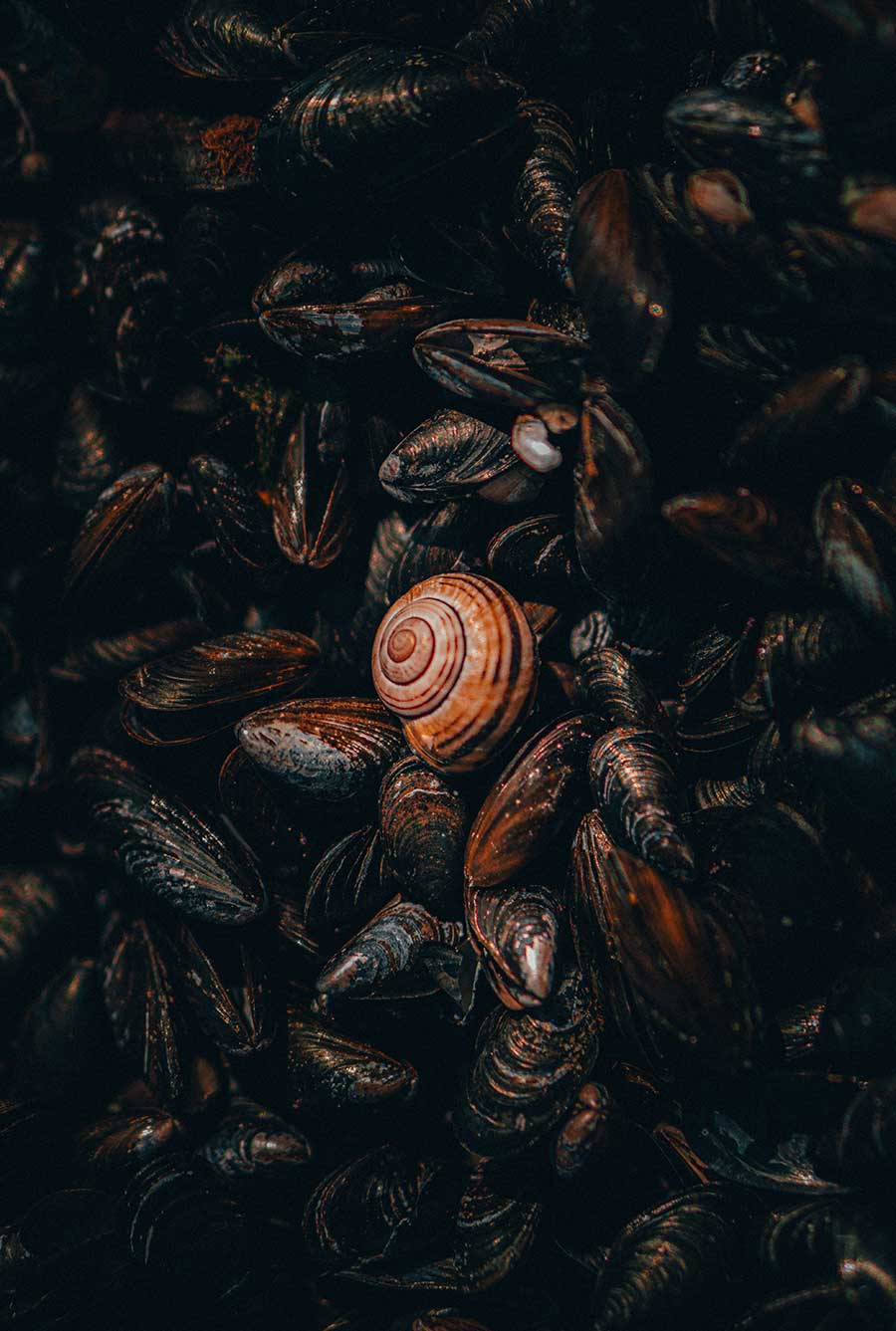Individuation & the Second Half of Life
Growing into our authentic self
Individuation, Carl Jung suggested, is the alchemical ‘Great Work’ of the second half of life, and it’s the process by which we grow into own most authentic self as we journey into elderhood. When we’re younger, we’re guided by norms that are imposed by family and society, striving to become what is expected of us; the result is the development of what Jung called the persona: the mask which we present to the world. But the persona rarely reflects our true self, because over the years we compromise, we adapt; we pretend to be something that we’re not – and along the way, in some fashion or other, we begin to betray our authentic nature. The process of individuation, then, is the process by which we begin to understand, in the second half of our lives, that the way we’ve been living is not the way that we need to live now – that we need to change, in order to live in a manner that is more aligned with our passions and our longings, with our ‘calling’, and that unique gift which each of us has to offer the world.
And so the purpose of the second half of our lives is to grow into the person that we were always meant to become. Jung believed that ageing fulfilled a necessary function, saying: ‘A human being would certainly not grow to be seventy or eighty years old if this longevity had no meaning for the species. The afternoon of human life must also have a significance of its own …’
The search for meaning
During the process of individuation, we are opened up to what Jung called the transcendent function, as we foster wholeness through a search for meaning. In order to live a meaningful life, he argued, we need to know that we’re related to something infinite, something that transcends the limitations of our individual human nature. We need to recognise ‘a divine life’ within us, to believe that we have a place in the universe, because the journey to elderhood is above all a spiritual passage.
In Jung’s writings, he repeatedly lamented the loss of the spiritual – what he called numinosity – in the modern world. People today are reluctant to apprentice themselves to mystery. Caught in the toils of egohood, he suggested, we’ve been taught to distrust anything we can’t see, touch or quantify, and we’re disoriented and dissociated because we’ve lost our ancient moral and spiritual traditions. And so Jung asks us – no matter how out of step with the over-culture we might find ourselves as a consequence – to foster our soul growth, arguing that, unless we do, we will never achieve our full potential.

‘Of all those who ever consulted me who were in the second half of life,’ he wrote, ‘no one was ever cured who did not achieve a spiritual outlook on life.’ The second half of life, then, gives us the opportunity to rediscover the parts of ourselves that we’ve buried, to find the path we have lost.
Jung believed that there is a particular dimension of the psyche beyond the ego (the conscious personality) which is the source of spiritual experiences; he called this the ‘self’. This spiritual element of the psyche reveals itself to us in various ways – through dreams, symptoms (physical and psychological), experiences of synchronicity … It is an inner force which guides us, expressed through a symbolic life which connects us with the transpersonal, with whatever it is that we imagine to be beyond us: the Divine, the creative power of the universe, the sacred. Not everyone might relate to words like Divine, or sacred, of course – but I think that most of us can relate to the idea of looking for a deeper, more meaningful way of living. And whatever we consider the Divine – or that deeper meaning – to be, working with myth and archetype through exercising the imagination is a natural way to understand it. It helps us to shine a light on who we really are.

Of all those who ever consulted me who were in the second half of life, no one was ever cured who did not achieve a spiritual outlook on life.
CARL JUNG
I believe that what Jung characterised as the purpose of the second half of life – the task of individuation – is actually the task of finally revealing our calling, of letting everything that is superfluous to that task fall away, and dedicating ourselves to the wholehearted expression of our ‘genius’. Jung’s ideas on individuation drew on the writings of Aristotle, who used the word entelechy to express the idea that there is a unique pattern, or seed, within the psyche of each living being. This has nothing to do with grandiosity, or a sense of being in some way ‘special’; it simply means that each of us is a unique expression of what it is to be human, and each of us has the opportunity in our lives to discover that uniqueness: our most authentic self. Jung described this as understanding the Imago Dei: the image of the Divine in us.
In the forthcoming Hagitude membership program, we’ll explore the unconscious inner obstacles, as well as the cultural obstacles, that interfere with our potential to benefit from the profoundly transformative possibilities which are open to us in later life. We’ll work with the great initiatory experience of menopause, and the ensuing journey into elderhood, as a rite of passage – one which will allow us to emerge renewed, each reclaiming our own unique Inner Hag, as an elder woman filled with life, meaning and purpose. Above all, this process is an awakening, as we learn how finally to grow into the person we always were meant to be.
Menopause, like all times of transition, is a time between stories, when the old story fades and a new story is waiting to emerge. Its invitations are manifold. It’s a liminal time, when we hover on the brink of profound transformation. During this period of intense physical change, it’s also necessary to turn inwards, to embark upon the inner work of elderhood – the work of reimagining and shaping who we want to be in the world, of gaining new perspectives on life, of challenging and evolving our belief systems, of exploring our calling, of uncovering meaning, and ultimately finding healing for a lifetime’s accumulation of wounds. Menopause is the threshold place we occupy before that new expedition to the country of elderhood properly begins: the waiting room in which we quietly sit and meditate on the unknown that is to come.
From Hagitude by Sharon Blackie
4 Comments
Submit a Comment
You may also like…
Elderhood: the post-heroic journey
The post-heroic journey to a rich and meaningful elderhood offers us a very different kind of ‘call to adventure’. It’s a call to adventure that calls us to uncover our calling, and the unique gift that we each bring to the world at this time.
Individuation and the second half of life
Individuation, Carl Jung suggested, is the alchemical ‘Great Work’ of the second half of life, and it’s the process by which we grow into own most authentic self as we journey into elderhood.
The Irrepressible Matriarchs of the North
Hagitude is dedicated to ‘the feisty and irrepressible old matriarchs of the far north-east of England, who enlivened my younger years and taught me never to let the illegitimi get me down.’ And indeed, growing up in County Durham, my childhood was dominated by old women.



Sharon, this information is wonderful – I am very excited to dive into the program, and so ready to do the work! Finding my way through the thick of this stage of life, and happy to be doing so. Earnestly awaiting the checkered flag on enrollment!
Thought provoking
Hi. “Googling” ‘Individuation” and the like, realizing at some point in the past several years that due to the family dynamics and mechanisms, I didn’t “Individuate” much past about age twelve, in a formal sense. (None for three generations did, although they didn’t realize this.) No needs were met, I showed up “wrong”, due to conditioning, the manner in which I was treated and more.
I am fifty-six and have been hacking away at this since I was thirty-eight; there was such “destruction’ in the prior generations, by the time I was born in January of 1967, the family system had long been defunct.
A friend, in 2021, said to me – as I was sharing what happened, what I had discovered, my life experience …. “Peter, look at how far you have made it on nothing …”, meaning little development, no structure early, no parenting — nothing, really. Can you help me, make a suggestion, refer me — Something? I’ve come so far, frankly, to even be able to ascertain such a thing.
very useful information. I didn’t know what individuation and alchemy mean but this is experiential for me.